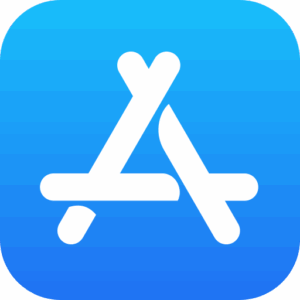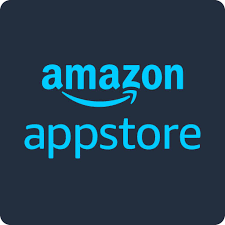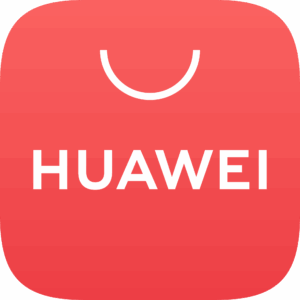Mobile app stores are essential platforms for distributing apps to users worldwide. While Google Play and Apple App Store lead the market, several other stores offer unique opportunities for developers and users. In this article, we explore a comprehensive list of mobile app stores, including global giants and region-specific platforms.

1. Google Play
Google Play serves as the main app store for Android devices, offering access to apps, games, books, movies, and other digital content in one location. The platform handles submission, review, and distribution processes, allowing developers to publish and monetize their apps, while users benefit from secure downloads and automatic updates. Additional features like Google Play Games provide cloud saves, achievements, and multiplayer support. The Play Pass subscription gives users access to a selection of ad-free apps and games.
The store is built to serve a global user base, with support for multiple languages, diverse payment methods, and built-in security measures. Clear publishing guidelines and frequent updates help developers maintain compatibility and quality. Google Play continues to be a key distribution channel for Android apps and media content worldwide.
Key Highlights:
- Official Android marketplace with broad content categories
- Built-in Google Play Games features such as cloud saves and achievements
- Play Pass subscription for ad-free curated apps and games
- Security scanning and automatic update delivery
- Global reach with diverse payment and language options
Who it’s best for:
- Android developers seeking a primary distribution channel
- Users who want one store for apps, games, and media
- Gamers interested in achievements and cloud saves
- Families looking for curated, ad-free content through Play Pass
Contact Information:
- Website: play.google.com
- Facebook: www.facebook.com/GooglePlay
- Twitter: x.com/GooglePlay
- Instagram: www.instagram.com/googleplay

2. Apple App Store
The Apple App Store is the official platform for downloading mobile apps on iPhone, iPad, Apple Watch, and Apple TV. Each app submission is reviewed for privacy, security, and content compliance before being made available to users. The storefront organizes apps by category, popularity, and editorial recommendations. Built-in in-app purchasing allows developers to offer additional content, while clear rules define how apps manage user data and payments.
The store follows a revenue-sharing model that supports platform operations and developer tools, with adjusted fees available for smaller publishers. Ongoing updates and a strict review system help ensure that apps remain functional, secure, and compatible with the latest Apple devices and software versions.
Key Highlights:
- Curated marketplace for the full Apple device family
- Mandatory privacy and security review for all submissions
- In-app purchase system integrated with Apple Pay
- Revenue-sharing structure with tiered fees
- Editorial recommendations and topical collections
Who it’s best for:
- Developers building for the Apple ecosystem
- Users who prioritise privacy and vetted content
- Creators using in-app sales to monetise content
- Teams relying on consistent device and OS standards
Contact Information:
- Website: apps.apple.com

3. Samsung Galaxy Store
The Galaxy Store is Samsung’s official app marketplace for Galaxy smartphones, tablets, and wearables. It comes pre-installed on these devices and offers a wide range of content, including apps, games, themes, icon packs, and watch faces that make use of Samsung-specific hardware features.
A Samsung account is required to access downloads, rewards, and promotional events. The store features exclusive titles, runs annual awards recognizing standout apps, and provides system updates for Samsung services. With a focus on customization and hardware integration, the Galaxy Store offers a dedicated platform for users and developers within the Samsung ecosystem.
Key Highlights:
- Pre-installed store on Samsung Galaxy devices
- Apps, games, themes, and watch faces tailored to Samsung features
- Reward points and gaming promotions
- Annual recognition program for developers
- Channel for distributing Samsung service updates
Who it’s best for:
- Users who own Samsung Galaxy phones, tablets, or wearables
- Developers leveraging Samsung hardware capabilities
- Gamers seeking Galaxy-specific promotions and rewards
- People who like deep visual customisation on their devices
Contact Information:
- Website: galaxystore.samsung.com

4. Amazon Appstore
Amazon Appstore for Android-compatible applications that fits into Amazon’s wider device and media ecosystem. They publish software for Fire tablets, Fire TV, and other supported hardware, and they let developers distribute apps with options such as in-app purchases and Amazon Coins for flexible payments. The store can be sideloaded on many third-party Android devices, giving users an extra channel for downloading and updating apps.
They maintain review processes, customer support tools, and regional storefronts so developers can reach audiences in multiple countries. Additional features, including promotional rewards and periodic free app offers, encourage discovery while keeping downloads within Amazon’s security checks. Together, these elements form a self-contained platform for both entertainment and practical apps.
Key Highlights:
- Marketplace tailored for Fire OS and Android devices
- Alternative payment paths through Amazon Coins and in-app purchases
- Sideload option for non-Amazon hardware
- Global storefronts with localized support
- Built-in promotions and rewards for user engagement
Who it’s best fo:
- Android developers seeking an extra distribution channel
- Fire tablet and Fire TV owners wanting apps optimised for Amazon devices
- Users who prefer Amazon payment and reward systems
- Teams looking for store tools tied to Amazon’s wider ecosystem
Contact Information:
- Website: www.amazon.com

5. Aptoide
Aptoide takes a decentralized approach to app distribution by allowing users and developers to manage their own repositories. Its open-source structure supports direct uploads and downloads of Android apps without requiring a central authority. The platform offers specialized versions for smartphones, smart TVs, VR devices, and children’s use, providing flexibility across different types of hardware.
It uses an open communication protocol to deliver content and has experimented with blockchain-based payments through AppCoins. While promoting independence in distribution, Aptoide also includes security measures like app scanning to detect known risks, supporting a community-driven system that operates independently from conventional app stores.
Key Highlights:
- Decentralised structure with user-managed repositories
- Multiple editions for phones, TVs, VR, and kids’ devices
- Open-source codebase and transparent delivery protocol
- Optional blockchain integration through AppCoins
- Community approach balanced by security checks
Who it’s best for:
- Developers wanting independence from centralised stores
- Power users who like hosting or subscribing to custom app lists
- Device makers needing a flexible store on forked Android builds
- Communities focused on open-source distribution and experimentation
Contact Information:
- Website: en.aptoide.com
- Email: support@aptoide.com
- Facebook: www.facebook.com/aptoide
- Twitter: x.com/aptoide
- LinkedIn: www.linkedin.com/company/aptoide
- Instagram: www.instagram.com/aptoidestore

6. Huawei AppGallery
AppGallery was developed to serve as the main app distribution platform for Huawei devices that run on HarmonyOS and Android-based EMUI. Following the shift away from Google Mobile Services, it was expanded with Huawei Mobile Services to handle key functions such as user accounts, payments, and access to core APIs. The platform offers apps, games, and digital content, with support for features tailored specifically to Huawei’s software and hardware.
Developer support includes toolkits and visibility options within the store to help reach both local and international audiences. AppGallery includes security checks, regional app recommendations, and reward systems to encourage user activity and maintain trust. It plays a central role in Huawei’s broader ecosystem while offering an alternative source for Android-compatible applications.
Key Highlights:
- Primary app store for HarmonyOS and EMUI devices
- Integrated Huawei Mobile Services for payments and login
- Support for HarmonyOS-native and Android-compatible apps
- Developer toolkits and promotion inside the store
- Security checks and regional content curation
Who it’s best for:
- Huawei device owners seeking apps tailored to HMS features
- Developers targeting HarmonyOS alongside Android
- Brands wanting visibility in Huawei’s growing ecosystem
- Users interested in region-specific app recommendations and rewards
Contact Information:
- Website: appgallery.huawei.com

7. F-Droid
F-Droid functions as a public catalog dedicated solely to free and open source Android applications. It allows users to download and update apps without creating an account, and clearly marks entries with information about features like ads or tracking. This focus on transparency gives users more control over what they install and how apps behave.
In addition to offering its main repository, F-Droid enables users to host their own or mirror existing catalogs. It supports offline sharing, Tor access for added privacy, and continuous integration tools to keep apps up to date. The platform emphasizes user freedom and privacy, operating independently from commercial app distribution models.
Key Highlights:
- Hosts only free and open source Android apps
- No account needed for downloads or updates
- Labels apps that contain ads, tracking, or other flagged items
- Supports offline transfers and Tor connections
Who it’s best for:
- Users who want apps without proprietary tracking or fees
- Developers releasing open source projects to a privacy focused audience
- Groups running custom or offline Android catalogues
- People who prefer transparent information about app behaviour
Contact Information:
- Website: f-droid.org

8. GetJar
GetJar was established as a platform for distributing mobile applications across a wide range of devices and operating systems. It allows developers to upload their apps at no cost and makes them available to users through organized categories and user reviews. The platform prioritizes accessibility over exclusivity, making it a viable option for devices that may not support mainstream app stores.
Downloads remain free, supported by ads and guided by community feedback to help highlight useful apps. Basic security checks and visible permission details assist users in making informed choices, while the simple upload process encourages participation from independent developers and smaller teams.
Key Highlights:
- Free submission and distribution for mobile apps
- Catalogue covers multiple devices and operating systems
- Community reviews and category lists guide discovery
- Security scans and permission details shown to users
Who it’s best for:
- Developers seeking a no cost entry point for wide device coverage
- Users running older or less common mobile operating systems
- Teams testing apps before publishing to larger stores
- Anyone looking for free applications outside the main marketplaces
Contact Information:
- Website: getjar.com
- Facebook: www.facebook.com/GetJar
- Twitter: x.com/GetJar
- LinkedIn: www.linkedin.com/company/getjar-store
- Instagram: www.instagram.com/getjarstore

9. SlideME
SlideME offers a curated platform for distributing Android applications, specifically focusing on devices that use the open source version of Android without Google Play Services. It is often preloaded on hardware from partner manufacturers, with all apps reviewed to ensure compatibility with such environments. The platform organizes app access by region, device type, and supported payment methods, helping developers connect with niche markets.
In addition to app distribution, SlideME provides managed services for device vendors and offers flexible revenue options for developers. This model supports reliable performance on non-Google builds while giving users and manufacturers an alternative channel tailored to specific device needs.
Key Highlights:
- Curated marketplace for Android apps and games
- Focus on devices that lack Google Play Services
- Preloaded on partner hardware worldwide
- Managed app store services for device vendors
Who it’s best for:
- Manufacturers shipping Android devices without Google apps
- Developers targeting niche markets or alternative Android builds
- Users wanting a vetted catalogue on non Google devices
- Teams needing store services bundled with device distribution
Contact Information:
- Website: slideme.org
- Address: 113 Cherry Street #6980, Seattle, 98104-2818, USA.

10. Uptodown
Uptodown provides a platform for downloading Android applications through both a web browser and a dedicated Android app. It allows users to access and install apps without requiring registration and offers both current and older versions of software. Files are scanned using multiple antivirus engines, and each app listing includes reviews written in clear language to help users understand what they’re installing.
The Android client adds features such as automatic updates and the ability to roll back to previous versions. Uptodown is frequently used by developers and manufacturers working with devices that do not include Google Play, and its multilingual interface supports app distribution across various global markets.
Key Highlights:
- Browser and Android client with no account required
- APK downloads plus the option to roll back to earlier versions
- Antivirus scanning and human-written app reviews
- Works on devices that do not include Google Play Services
Who it’s best for:
- Users who want quick access to apps without registration
- People looking for previous versions of Android apps
- Device vendors shipping AOSP-based hardware
- Developers seeking another channel outside mainstream stores
Contact Information:
- Website: en.uptodown.com
- Facebook: www.facebook.com/Uptodown.International
- Twitter: x.com/uptodown
- LinkedIn: www.linkedin.com/company/uptodown
- Instagram: www.instagram.com/uptodown

11. Itch.io
Itch.io offers a flexible platform for independent creators to publish games, comics, music, and digital assets. Each creator can set pricing, control revenue share, and customize their storefront, making it a suitable space for personal projects and unconventional releases. The platform includes built-in support for game jams, allowing developers to organize or join time-limited events focused on rapid creation.
Additional features include tools for selling product bundles, often used for themed collections or charity fundraising. Comment sections, ratings, and other community functions promote direct interaction between developers and users, with an emphasis on feedback and discovery rather than aggressive marketing.
Key Highlights:
- Pay-what-you-want pricing and flexible revenue share
- Built-in game jam hosting and community events
- Customizable pages for each project
- Bundle tools for group sales and charity campaigns
Who it’s best for:
- Indie developers wanting control over pricing and presentation
- Players interested in experimental or niche games
- Organisers running game jams or collaborative events
- Creators raising funds through themed bundles
Contact Information:
- Website: itch.io
- Facebook: www.facebook.com/itchiogames
- Twitter: x.com/itchio

12. APKPure
APKPure provides access to unmodified APK and XAPK files for Android apps, offering users the ability to download specific versions directly. Security measures include signature verification and daily scans, with verified files clearly marked. The platform supports multiple languages and allows users to choose from current or older app versions, which is useful for compatibility with different devices or operating systems.
In addition to downloads, APKPure features content such as app guides, update news, and rankings to help users make informed decisions. A dedicated portal for developers includes tools for localization and app distribution, especially for audiences without access to Google Play.
Key Highlights:
- Original APK and XAPK files with signature checks
- Multi-step scanning before a file is marked safe
- Choice of current or older app versions
- Website and client available in many languages
Who it’s best for:
- Android users who need a store outside Google Play
- People requiring older or region-specific app versions
- Developers targeting areas where Play Services are limited
- Users who value clear safety badges and detailed download info
Contact Information:
- Website: apkpure.com
- E-mail: market@apkpure.com
- Instagram: www.instagram.com/theofficialapkpure

13. AppBrain
AppBrain offers a suite of tools designed to support Android developers with user acquisition, monetization, and app performance analysis. Its platform enables the setup of cost-per-install campaigns, integration of in-app ads from multiple networks, and access to real-time data on rankings and user retention. A lightweight SDK and web interface streamline the setup process, allowing developers to manage everything from one place.
Additional features include a search system that provides insights into app metadata from Google Play. This helps developers compare apps, identify trends, and adjust their strategies based on measurable data. By combining marketing tools with app intelligence, AppBrain supports continuous improvement across the app development cycle.
Key Highlights:
- Cost-per-install campaigns managed from a single dashboard
- In-app ad units sourced from many networks
- Ranking and retention tracking alongside competitor insights
- Searchable database covering the Android ecosystem
- Lightweight SDK and fast setup
Who it’s best for:
- Android teams needing user acquisition without large budgets
- Developers seeking ad revenue that blends with app design
- Studios comparing features against market peers
- Product leads who prefer quick, code-light integrations
Contact Information:
- Website: www.appbrain.com
- E-mail: contact@appbrain.com
- Twitter: x.com/TheAppBrain
- LinkedIn: www.linkedin.com/showcase/appbrain
- Address: Stallikerstrasse 29 8142 Uitikon Switzerland

14. Kongregate
Kongregate began as a browser-based gaming platform that allowed developers to upload games built in formats like HTML5, Unity, and others. It featured systems for achievements, virtual goods, and player profiles that tracked activity across the site. While the platform has since stopped accepting new web game submissions, it continues to operate as a publisher for mobile and PC games.
Support for developers includes resources on file guidelines, ad revenue sharing, and integration of the platform’s virtual currency, Kreds. An available API offers tools for achievements and game analytics. For players, Kongregate maintains a community-focused experience centered around progression, rewards, and access to a broad catalog of titles.
Key Highlights:
- Portal for web play plus a publishing arm for mobile and PC
- Achievement system and site-wide virtual currency
- Revenue share on ads and in-game purchases
- API for stats, leaderboards, and user rewards
- Support resources covering uploads, payments, and legal issues
Who it’s best for:
- Indie teams wanting a publisher that handles mobile rollout
- Web developers migrating older titles to new platforms
- Players who collect badges and enjoy community leaderboards
- Studios seeking flexible revenue splits on ad or virtual goods sales
Contact Information:
- Website: www.kongregate.com
- Twitter: x.com/kongregate
- LinkedIn: www.linkedin.com/company/kongregate
Conclusion
The mobile app landscape offers more than just the major platforms most users are familiar with. From centralized marketplaces like Google Play and the Apple App Store to alternative options like F-Droid, APKPure, and SlideME, each app store serves a different purpose depending on user needs, device compatibility, and developer goals. Some focus on open source distribution, others provide broader device access, and several offer extra features like rollback versions, curated content, or decentralized hosting.
Choosing the right app store depends on what you value most – security, flexibility, platform independence, or market reach. For developers, understanding the differences between these platforms can help target the right audience and distribute apps more effectively. For users, it’s about having options and control over how and where apps are downloaded and updated.


